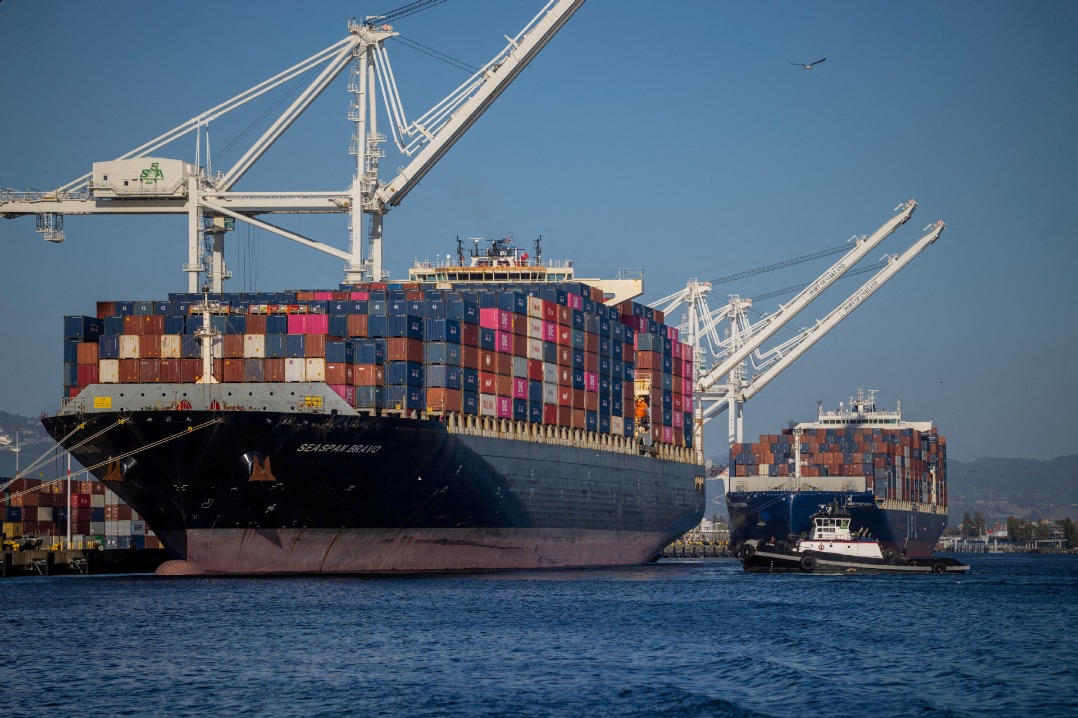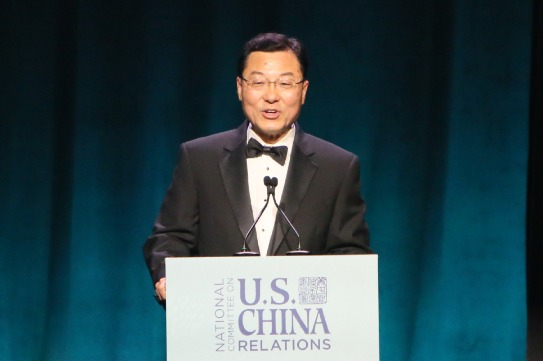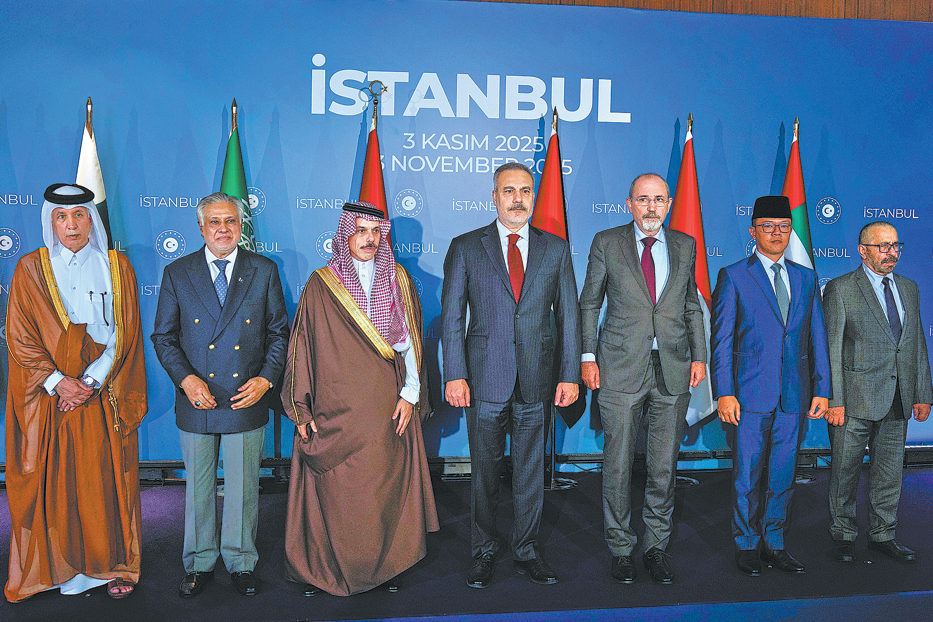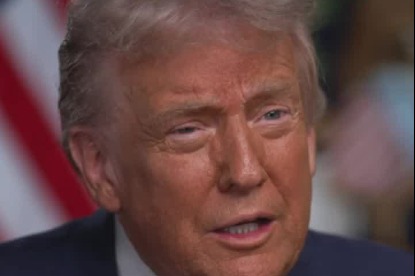Allies weigh options amid uncertainties
As US volatility rattles global partners, Canada and peers push to diversify trade

As US trade and foreign policies become increasingly unpredictable, Commonwealth allies such as Canada and New Zealand are diversifying their economic partnerships.
Radhika Desai, a professor of political studies at the University of Manitoba in Canada, noted that Canada finds itself in a difficult position after decades of deepening its dependence on the United States.
Since the mid-1980s, Canadian elites have "put all their eggs in the American basket", ignoring warnings that such reliance could amount to a "silent surrender", Desai said.
That dependence has become increasingly costly under the current administration of US President Donald Trump, she said, recalling that his first term tore up the North American Free Trade Agreement and forced Canada into a less favorable deal.
Now, facing a second Trump term, she said Prime Minister Mark Carney's failure to stand up to Washington has left many Canadians "disappointed".
Desai pointed out two key constraints to Canada's shift away from the US: deep economic integration and an entrenched ruling class unwilling to pursue diversification, especially if it means closer ties with China.
At the same time, public sentiment in Canada has increasingly turned against identifying with the US, she said.
Desai attributed Washington's volatility to deeper structural problems at home.
"The Trump administration has initiated this shift ... for reasons that have more to do with the internal crisis of the US than with anything specific about the Canada-US partnership."
Decades of financialization and deindustrialization have created a situation in which no presidential election can be won by those claiming the US economy is doing well, she said.
Trump acknowledged its weakness but blamed trade, China and immigrants instead of neoliberalism, she said. "That is why he has to stage all this drama about tariffs — now imposing them, now retracting them."
This unpredictability has lasting consequences, she said. Governments around the world realize that the US will not suddenly turn into a predictable economic partner, even if a Democratic administration takes office in three years, she said.
While Canada remains tightly bound to the US, Desai said she believes a gradual realignment is inevitable. "If the same ruling elites continue to hold on to power, then they will be dragged reluctantly into a multipolar world."
Last month, Carney met with Southeast Asian leaders and investors while attending the ASEAN Summit in Kuala Lumpur, Malaysia.
He aimed to strengthen partnerships in trade, technology and energy, signaling Canada's push to diversify its economic relationships beyond traditional partners.
"The world is changing rapidly and Canada must dramatically change its economic strategy," Carney said in a statement.
"We must make generational investments to build our economy at home and work relentlessly to diversify our trade partnerships abroad."
EU-Australia deal
Meanwhile, Sean Kelly, chair of the European Parliament's Delegation for Relations with Australia and New Zealand, visited Australia in recent days to negotiate the long-awaited European Union-Australia Free Trade Agreement.
The visit marks "an important milestone in our partnership" and reflects both sides' commitment to an open, rules-based trading system, he said.
The EU and New Zealand also reaffirmed their long-term commitment to an open, rules-based multilateral trading system with the World Trade Organization at its core in a joint declaration signed on Oct 28.
Zhang Haiping, a senior lecturer of economics at the University of Auckland in New Zealand, said the agreement reflects "New Zealand's active effort to deepen its trade and investment ties with like-minded partners".
Beyond Europe, New Zealand has recently concluded a free trade agreement with the United Kingdom and the Gulf Cooperation Council, Zhang said. Since early this year, it has also been engaged in such negotiations with India, he said.
"New Zealand has been seeking to diversify its trade and economic partnerships to strengthen supply chain resilience and reduce exposure to market-specific shocks."
gaoyang@chinadailyusa.com
































